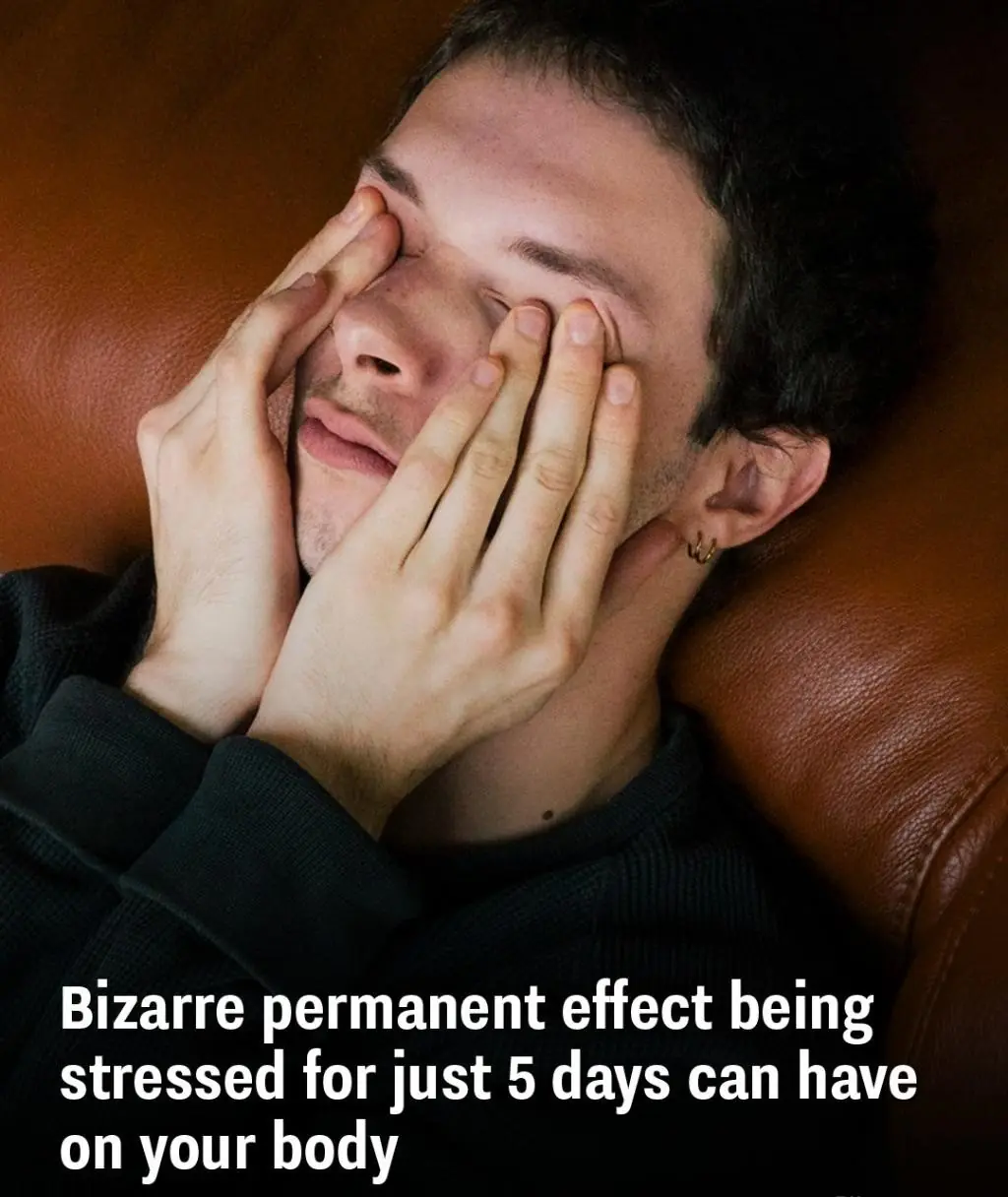
Pulsatile Tinnitus: Why You Hear Your Heartbeat While Lying Down
Why You Hear Your Heartbeat on Your Pillow — and When It Could Signal Something More Serious
Have you ever climbed into bed, laid your head on the pillow, and suddenly noticed the steady thump of your heartbeat echoing in your ear? It can feel strange — even a little unsettling. But in many cases, it’s nothing to worry about. Understanding why this happens can help you tell the difference between a normal bodily response and something that may require medical attention.
Why Do You Hear Your Heartbeat on Your Pillow?
Hearing your heartbeat while lying on your side is surprisingly common — and usually normal. According to Dr. Anthony Youn, a U.S.-based surgeon, this phenomenon often occurs when the carotid artery, a major blood vessel that supplies blood to the head and neck, presses against the pillow. Its proximity to the inner ear makes the pulse more noticeable, especially when you're lying down in a quiet room.
It’s like a built-in drumbeat — the soft thudding of blood flowing through your body becomes amplified in the silence of the night. The lack of ambient noise gives way to your internal symphony. In many cases, people are simply more aware of these natural sounds because their environment is calm and distraction-free, which allows subtle bodily sensations to come to the forefront.
For some, this awareness fades quickly. But if the pulsing sound continues and becomes difficult to ignore, it could be something known as pulsatile tinnitus.
What Is Pulsatile Tinnitus?
Pulsatile tinnitus is a unique type of tinnitus where the sound you hear syncs with your heartbeat. Unlike the more common form of tinnitus, which typically presents as a constant ringing, buzzing, or hissing, pulsatile tinnitus follows the rhythm of your pulse.
Dr. Youn explains that in many cases, this condition is harmless. However, persistent or disruptive symptoms shouldn’t be ignored, as they may sometimes indicate underlying health issues. These can range from vascular conditions to abnormalities in the structure of the ear or surrounding tissues.
Common Causes of Pulsatile Tinnitus
Several conditions can lead to pulsatile tinnitus, including:
-
High Blood Pressure (Hypertension): Increased pressure forces blood through your arteries more forcefully, creating a sound you might hear as a pulse.
-
Atherosclerosis: This is the hardening or narrowing of the arteries. When arteries near the ear lose their flexibility, blood flow can become turbulent and audible.
-
Anemia or Hyperthyroidism: Both conditions increase overall blood flow in the body, which can heighten the perception of your heartbeat.
-
Ear Abnormalities: Issues such as a perforated eardrum, thinning bone near the ear, or vascular malformations can make internal sounds more noticeable.
-
Tumors: In rare cases, tumors in the head or neck can press on nearby blood vessels, affecting blood flow and producing a pulsing sound in the ear.
Other potential contributors include head injuries, vascular malformations, and even certain medications that alter blood pressure or blood flow.
When to See a Doctor
In most cases, hearing your heartbeat when lying down isn’t cause for concern. But there are times when you should seek medical evaluation:
-
The sound persists and affects your ability to sleep or concentrate.
-
You hear the sound even when sitting or standing upright.
-
It is accompanied by other symptoms, such as headaches, dizziness, visual disturbances, or a feeling of pressure in the head.
These signs could point to more serious conditions, including carotid artery disease, aneurysms, or arteriovenous malformations (abnormal connections between arteries and veins). Getting a professional evaluation can help determine whether any underlying issues are present.
Diagnosing and Treating Pulsatile Tinnitus
If your symptoms suggest pulsatile tinnitus, your doctor may begin with a physical examination and medical history. They might use a stethoscope to listen to blood flow in your neck and head to detect any unusual sounds.
Depending on what they find, additional testing may include:
-
Imaging Tests: CT scans, MRIs, or MR angiography can help visualize blood vessels and structures near the ear.
-
Blood Tests: These can detect anemia, thyroid disorders, or other systemic conditions.
-
Hearing Tests: To assess the function of the inner ear and rule out hearing loss or other auditory issues.
Treatment will depend on the root cause. Options may include:
-
Medication and Lifestyle Changes: For hypertension or thyroid issues.
-
Surgical Procedures: To correct vascular abnormalities or remove growths.
-
Sound Therapy or Cognitive Behavioral Therapy (CBT): For cases where no physical cause is found, these approaches can help retrain the brain’s response to the perceived sound.
For those dealing with persistent symptoms, white noise machines, fans, or even soft music can help mask the sound of the heartbeat during sleep. Meditation, deep breathing, and other relaxation techniques before bed can also make a significant difference in managing anxiety around the sound.
The Takeaway
In most cases, hearing your heartbeat through your pillow is simply a normal quirk of your body — nothing to panic over. It’s just your blood doing its job. But if it becomes a regular, disruptive part of your nights, or if it’s accompanied by other concerning symptoms, don’t hesitate to reach out to a healthcare provider. A simple check-up could give you peace of mind — or catch a condition before it becomes more serious.
News in the same category


Red Spots on Skin: 13 Common Causes

Vaping vs. Smoking: New Study Says Vapes May Be More Harmful

Study Explains How the First Born Child Is Often the Most Intelligent

What 20 Seconds of Hugging Can Do for You

New Study Found Microplastics In Every Single Human Semen Sample

Unlock the Health Benefits of the Castor Bean Plant: A Natural Remedy for Wellness

10 Vegetables That Are Good for Your Heart

I-motif DNA structures are formed in the nuclei of human cells

Hyperacute rejection-engineered oncolytic virus for interventional clinical trial in refractory cancer patients

Your Feet Could Be Signaling That Your Arteries Are Clogged

36-Year-Old Teacher Dies From Diabetes Doctors Say Was Triggered By Everyday Foods

Cancer Rates Rising in Gen X and Millenials Compared to Older Generations, Study Finds

Lungs Full of Mucus? 1 SINGLE Drop Clears Airways & Restores Lung Health! | Barbara O’Neill

Rejuvenate Your Prostate Naturally: The Incredible Power of Tomato and Garlic Juice

Experts reveal the five foods that seriously affect your eyesight including one many of us eat every day

Early signs of diabetes many fail to notice

Bizarre permanent effect being stressed for just 5 days can have on your body

Everything to know about US measles outbreak as 2025 cases so far surpass numbers for whole of 2024
News Post

Doctor's Warning To People Whose Fingers And Toes Change Color And Feel Numb In The Cold

Red Spots on Skin: 13 Common Causes

Vaping vs. Smoking: New Study Says Vapes May Be More Harmful

Businessman Loses All Hope After His Diagnosis, but One Hospital Encounter Changes Everything

My Husband's 'Business Partner' Showed Up at Our Door and Mistook Me for the Cleaning Lady — I Decided to Play Along

My Husband Asked for a Divorce Right After Learning About His Rich Father's Inheritance

Entitled Mom Claimed My Seat at the Cafe — Her Face Turned Red after I Taught Her a Lesson

My Fiancé Told Me His Grandma Wanted to Meet Me Before the Wedding – As I Arrived, a Nurse Pulled Me Aside and Said, 'Don't Believe a Word'

The Healthy Benefits Behind Grapeseed Extract: A Comprehensive Guide

I Built My Dream Home With My Husband of 22 Years — Then He Put It in His Mistress's Name!

Study Explains How the First Born Child Is Often the Most Intelligent

What 20 Seconds of Hugging Can Do for You

New Study Found Microplastics In Every Single Human Semen Sample

Unlock the Health Benefits of the Castor Bean Plant: A Natural Remedy for Wellness

'I Told You a Hundred Times Not to Do That!' My Husband's Accidental Words to My Friend, Whom I Thought He Had Never Met Before

We Rented a House From an Elderly Woman—And Found Letters in the Walls from the Man She Lost

My Family Left Grandpa at the Hotel to Avoid Paying — They Didn't Realize I Was the Wrong Grandson to Mess With

10 Vegetables That Are Good for Your Heart
